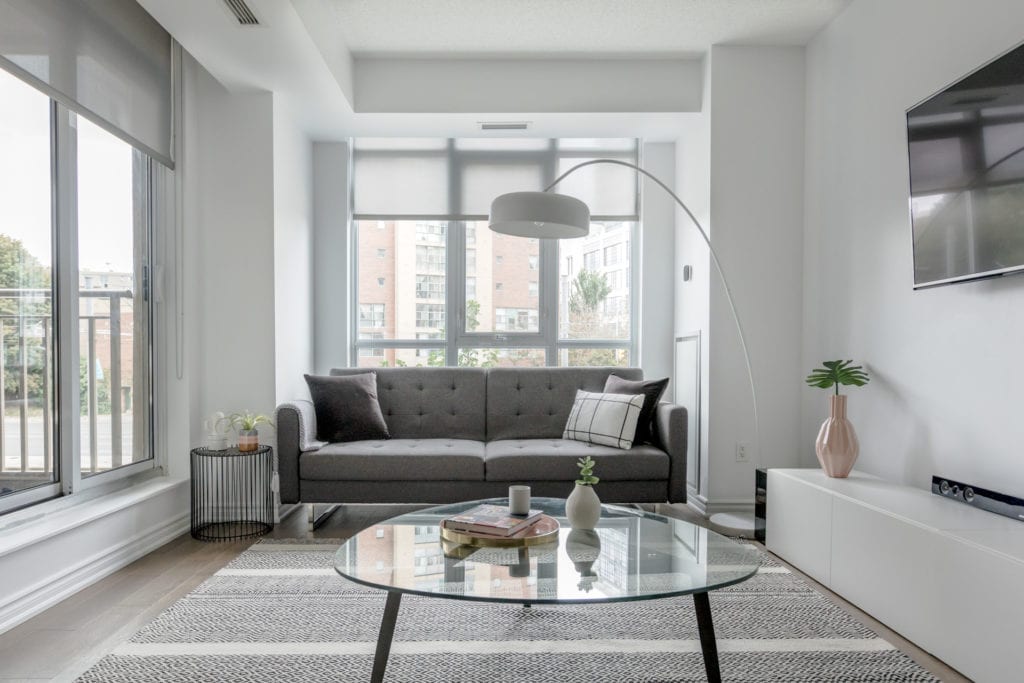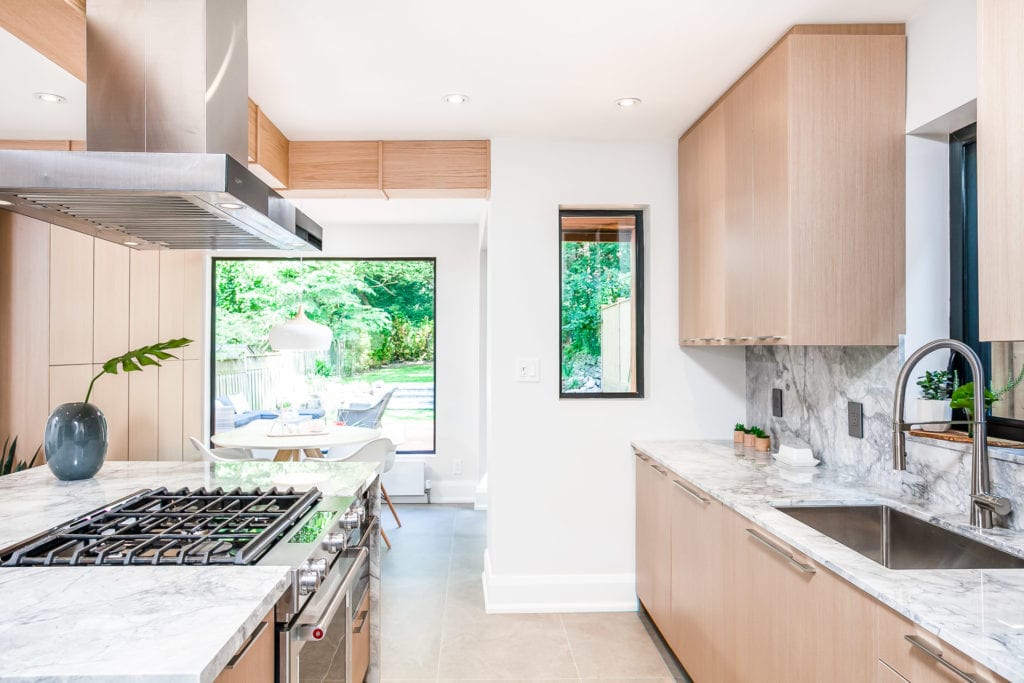June 20th, 2019 | Real Estate Finance
Is CMHC For Me?

In working with Buyer’s we’re often asked about CMHC. How much will it cost? Do I have to pay it up front? What other options do I have?
Amir is a numbers guy and tends to weigh his options based on ROI (return on investment) and opportunity cost (how much money/time/effort etc. an opportunity is going to cost him vs. what he will get back in return – not necessarily a profit related factor though). So in analyzing CMHC – we’ll keep it simple and look at it solely from an ROI perspective – simply put: will I make money?
CMHC aka Canada Mortgage and Housing Corporation is Canada’s national housing agency. They also happen to be Canada’s premier provider of mortgage loan insurance. Other companies exist – including but not limited to Genworth Financial Canada. However, for our discussion, we will focus on CMHC.

What is mortgage loan insurance, you ask? Glad you asked. Here’s the basic principle:
- Typically, when Buyers purchase a home, how much they put down (i.e. their down-payment) varies.
- Who pays for this? The mortgage premium is rolled into the mortgage amount borrowed by the Buyer
- HST on the premium is paid by the Buyer on the closing
- Lenders typically require mortgage loan insurance if the amount you are borrowing exceeds 80% of the purchase price.
- Why? To protect their arses of course!!
- Since loans over 80% of the purchase price are considered high-ratio loans (or mortgages), lenders categorize these loans with a greater chance to default (or failure to pay) on the loan.
- If default occurred the lender would be paid out by the insurer (CMHC).
- And no, in the event that you don’t default, you do not get any money back — it’s just like car insurance .. well kind of. Don’t you just love insurance companies!!
Now, there are exceptions to this rule – hence we said ‘typically’ – and these exceptions (to whether or not a lender will require insurance on a loan/mortgage) are largely based on:
(A) The mortgage rules at the time of purchase
(B) Who your lender is (i.e. a major bank aka an A-lender OR a B-lender aka Second-tier lender aka someone who is willing to give you money despite some discrepancies with your credit or other financial issues and may charge you a flat fee or a higher % rate on the given loan).
All this is great – but who cares – right? What does this all mean? What are we really trying to get at here?
Well, it’s simple, should you make the purchase in question?
- If you have 20% as a down-payment – should you put it all down or perhaps reserve some of your funds and take the CMHC hit on the loan?
- If you don’t have 20% down, but you still want to make a purchase – does it still make sense for you to make a purchase despite having to pay CMHC premiums on your loan?
To analyze these scenarios – it’s best to illustrate with a specific example – so here goes:
- Our example: Our Buyer is purchasing a home (house or condo) for $900,000 and is getting his loan from an A-lender who requires mortgage loan insurance on high-ratio loans (less then 20% downpayment).
- The questions to ask each time are:
- Should I leverage CMHC? Should I make this purchase?
Scenario #1: Buyer has 20% or $180,000 to put down

- Should I leverage CMHC? Should I make this purchase? With 20% down our Buyer will pay no insurance premiums outside of what he’ll owe the lender for the mortgage amount. However, what if there is another investment he is considering making? Let’s say another house! The lender tells him that based on his credit/income etc. he can make 2 purchases and put 10% down on each purchase (instead of 20% down on the one). Well, if our Buyer puts only 10% down, his CMHC insurance on $900,000 is $25,110+$3264.30 (HST) or $28,374.30 total. So, if our Buyer decided to make 2 purchases instead of the one he’d have to pay $28,374.30 x 2 or $56,748.60 (CMHC premium on loan for each of the 2 homes he purchases).
- Is this worth it? If our Buyer stands to gain more than $56,748.60 upon the future sale of both properties (i.e. profit from 2 sales > $56,748.60) than absolutely!! The Buyer should make both purchases. However, clearly if the profits are going to be less than that, the Buyer should stick to his original plan of putting 20% down and incurring no CMHC premiums.
- Side note: $28,374.30 is approximately 3% of $900,000. Meaning that the value of each of his homes since purchase would have to increase by at least 3% to cover the premium cost – this 3% would have to be above and beyond the percent increase in value needed to cover other associated costs of the sale (including realtor, solicitor, marketing, cleaning, transfer, taxes etc.)
Scenario #2: Buyer has 10% or $90,000 to put down

- Should I leverage CMHC? Should I make this purchase? If our Buyer has only 10% of the purchase amount to put down – he will be carrying a CMHC premium on his loan. As seen in Scenario #1, the CMHC premium on the additional 10% our Buyer does not have is $25,110, which will be blended into his mortgage. Now, should he still buy? Well, it depends, consider the following:
- Our Buyer is buying to live for 5+ years: If it’s likely that sale prices will continue to increase and our Buyer feels confident that over the course of the 5+ years he will absorb the $28,374.30 premium + HST in his profits, despite fluctuations in the market – then he should go for it!
- Our Buyer is buying as a short-term investment and will likely be looking to sell in 1-2 years: Then it is harder to predict. He has tons of market reports that claim one thing and another the next month – he would have to feel confident that the market would at the very least increase enough within the 1-2 year timeframe so that the $28,374.30 CMHC premium and tax is absorbed upon the sale of the property. If not – then he should likely refrain from making the purchase.
Scenario #3: Buyer has 5% or $65,000 to put down (5% on the first $500k & 10% on the remaining amount)

- In this scenario, our Buyer has 5% to put down and will have to pay a premium of $33,400+$4,342 (HST) for a total of $37,742. Should he make this purchase? Again, let’s look at his circumstances:
- Our Buyer is buying to live for 5+ years: Again, if he feels confident that over the course of the 5+ years the $37,742 premium + tax on the loan will be absorbed in the profits made – then he should go for it.
- Our Buyer is buying as a short-term investment and will likely be looking to sell in 1-2 years: This one is tricky as $37,742 is approximately 4% of his original purchase price. He needs to feel confident that this cost will once again be absorbed in the profits upon the future sale. If he doesn’t – he should likely refrain from making the purchase.
- This 4% increase would have to be above and beyond the percent increase in value needed to cover other associated costs of the sale (including realtor, solicitor, marketing, cleaning, transfer, taxes etc.).
Just a quick note!
Remember, this is just looking at a purchase from a ROI (investment) perspective. However, it’s not always about the money! If our Buyer was simply looking to live somewhere and had an affinity toward a particular neighbourhood/home etc. – it may not matter whether a profit could/would be realized as there are intangible benefits that simply cannot be measured monetarily.
Given that, this post was about whether CMHC makes sense or not – we analyzed based on numbers and not emotions.
What are your thoughts? Based on this information, will you be putting 20% down on your next purchase to avoid the CMHC premium?
Not sure, let’s talk numbers!








